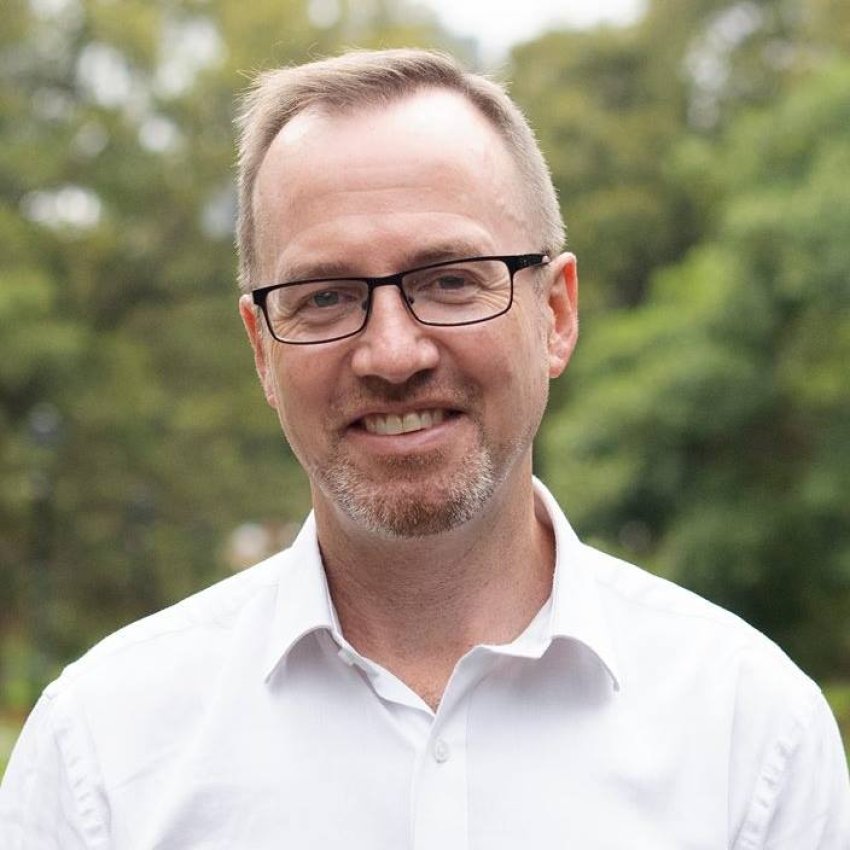
David Shoebridge spoke to Green Left about why he wants to see a minority Labor government, with Greens and other progressives holding the balance of power in the Senate.
“Supporters love our policies, but cannot see how we can get them across the line,” he said. “That’s what our balance of power campaign is about.”
Slamming the federal government’s “chaotic non-response” to the pandemic, he said “we’ve seen an ideology-driven dismantling of efforts to control COVID-19” that is putting “huge pressure on our public hospitals”.
Shoebridge is scathing of the “let it rip” strategy. “We see the level of over-work for nurses and now people being told to go back to work when they could be sick, or at risk.
“People are realising these state and federal Liberal leaders don’t actually care about them … we are all expendable.”
A federal Independent Commission Against Corruption (ICAC), climate action and real solutions to the housing crisis are important. Asked why a federal ICAC is even a possibility, given the major parties have kicked the can down the road for decades, Shoebridge said that New South Wales “has shown everybody how essential and effective it [the NSW ICAC model] is”.
The federal government’s efforts to trash ICAC’s reputation didn’t wash with an angry electorate. “NSW has become a voice for accountability,” Shoebridge said, adding, “we want to replicate that federally”.
Climate action
The Greens have long sought to cut carbon emissions and ensure sustainable jobs are created. But with the powerful coal and gas lobby’s grip on the major parties and the path to Cabinet strewn with deposed Prime Ministers, is a federal renewable energy law really possible?
Shoebridge points to the NSW Greens’ role in negotiations in November 2020 that broke a political impasse on renewable energy when then NSW energy minister Matt Kean brought in the NSW Electricity Infrastructure Roadmap.
Kean said the government was responding to calls for carbon emission cuts and for lower energy prices, even though the roadmap included expanding gas. Shoebridge said the Greens managed to force concessions on renewable energy.
The bill was supported by the Greens and Labor, even though it was “far from perfect”. “It was a lot better than what we had,” adding it would be hard to get a federal renewable energy policy through but that it had to be tried.
Affordable housing
The Greens want the balance of power to force the federal government to commit to a 10-year plan to build “a million affordable homes” at the rate of “100,000 homes per year”.
With approximately 60,000 people on the public housing waiting list just in NSW, Shoebridge said the Greens’ plan for a new public, social and shared equity trust scheme are intended to be done “in partnership with the states and territories”.
He said it would be paid for by “putting a particular tax on fossil fuel corporations” and stopping the “billions and billions in taxpayer-funded subsidies particularly to fossil fuel corporations”.
Asked about how the Greens would use their balance of power in the Senate to help those in crisis right now, Shoebridge pointed to the Greens’ support for a Universal Basic Income of $80 a day, which he said, “is almost enough to live on, live a life of dignity”.
Pointing to the poverty crisis facing older women, he said if the Greens in the balance of power would “urgently lift the level of support so that no one in a country as wealthy as ours is thrown into homelessness”.
Numbers game
The Senate is key to gaining the balance of power. Shoebridge said that because of how half-Senate elections work, the federal election is the Greens’ “first and best opportunity” to elect a second Greens Senator in South Australia, New South Wales and Queensland.
Twelve Green Senators will almost be enough to hold the balance of power in their own right. Shoebridge said one or two other votes may still be needed to drive a progressive agenda. Having been part of “shifting the balance of power in NSW”, he remains confident that 12 Green Senators and a minority Labor government could “reshape” the federal policy agenda.
Shoebridge does not underestimate the impact that federal pork barreling or the danger of right-wing fringe parties taking precious Senate votes. But he believes community support of engaged candidates, who have appropriate training, will go a long way towards helping progressive candidates navigate a new Senate.
How can small parties like the Greens counter the privately-funded misinformation and character assassination campaigns? Shoebridge believes the best way to change hearts and minds is to “talk to your workmates, friends and families” about “genuine alternatives” to the Labor and Liberal-National parties.
[Listen to the full discussion with David Shoebridge below.]